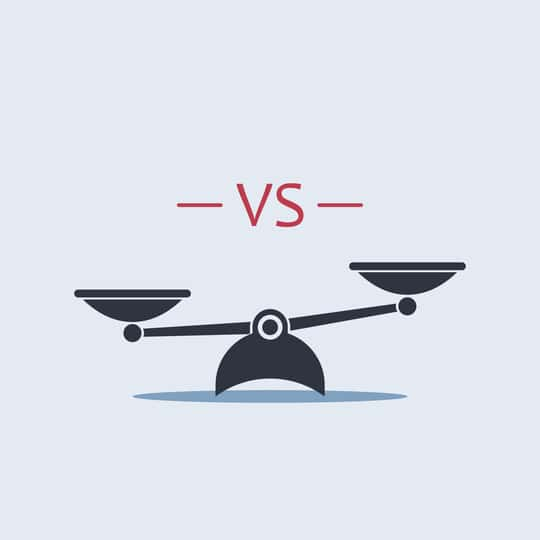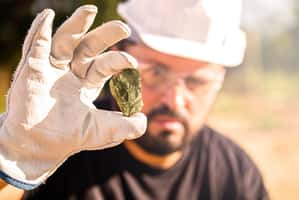The EV industry has remained synonymous with Tesla, Inc. (TSLA) for quite some time, as the company has established itself as the largest EV manufacturer in the world. With strategic manufacturing facilities worldwide, TSLA revolutionized the EV industry with its high-performance cars.
However, the days of complete domination are over for TSLA, as Chinese EV manufacturers, such as NIO Limited (NIO), have emerged over the past couple of years with fresh designs and innovative technologies. TSLA is no longer the unchallenged leader of the EV industry, as NIO’s flagship vehicles, which are sold at substantially lower price points, are a major threat. NIO’s latest plan to sell batteries separately to reduce the long-term costs of maintaining its EVs is attracting a large segment of the market. After emerging as a leading player in the biggest EV market of the world i.e. China, NIO is set to compete with TSLA on a global platform.
Both Tesla and NIO have generated significant returns year-to-date. While NIO gained 1058.2% over this period, TSLA returned 676.8%. In terms of past six-month performance, NIO is the clear winner with 679.9% gains compared to TSLA’s 242.1% returns. However, TSLA has gained 51.2% over the past month, while NIO returned 11.8%.
So, which stock is a better buy now? Let’s find out.
Latest Developments
TSLA’s stock has been in 2020, with 867.4% gains over the past year. In fact, the surging price led to a 5-for-1 stock split earlier this year after CEO Elon Musk acknowledged that the stock was overvalued.
However, bullish investor sentiment has so far been justified, as the company generated profits for five consecutive quarters, leading to its inclusion in the S&P 500 index, effective December 21st. Musk’s private wealth increased significantly with TSLA’s success and he is currently said to be the second richest person in the world.
However, a leaked email sent by Musk to his employees shows rising concerns by management about the company’s low profitability and high costs, which could lead to a decline in its stock price if left unchecked.
Also of concern, TSLA vehicles are currently being investigated by the National Highway Traffic Safety Administration (NHTSA), after more than 29,000 Model X and Model Y vehicles were recalled in China.
TSLA plans to launch three new electric vehicles soon, including the Tesla Cybertruck and two new electric cars. It plans to invest up to $12 billion in electric vehicles and battery factories over the next two years, with manufacturing facilities in three continents. The company raised $4.97 billion through in a stock offering in September to fund its capital-intensive projects soon. The company is currently working on developing its fully autonomous driving feature, which should be integrated in TSLA vehicles in some jurisdictions by 2021.
Moreover, TSLA is reportedly planning to launch its products in India in 2021. With its huge population and market base, this expansion into India is expected to ramp up the company’s profits TSLA also has plans to open a new battery system project in Australia, which has been dubbed as ‘Big Tesla Battery’. In this regard, TSLA partnered with French renewable company Neoen to develop 300/ 450 MWh in South Australia.
After successfully dominating the electric vehicle industry, TSLA is currently venturing into other sectors. The company’s prior acquisition of Solar city in 2016 has given it a smooth entry point in the solar panel manufacturing industry. CEO Elon musk expects this segment to become the next “killer product” by 2021. Total solar deployments in the third quarter ended September 2020 more than doubled sequentially to 57 MV, while solar roof deployments tripled over this period.
TSLA also joined the tequila business on November 7th, launching its uniquely shaped tequila bottles through its official website, which sold out within hours.
Following the news release of Pfizer and BioNTech’s vaccine, Musk confirmed that TSLA became the manufacturing partner for German biotech firm CureVac and is currently in the process of developing RNA micro-factories and version 3 vaccine printers.
Chinese EV manufacturer NIO is not far behind. The company has gained popularity this year owing to its unique business model. Its flagship vehicles, ‘battery as a service’ subscription plans and lower cost of production has earned the company the moniker he ‘Tesla of China’. The EV manufacturer’s impressive business model and budding expansion plans has made it a favorite stock among Millennials, with an average trading volume of 161.95 million.
NIO raised $1.30 billion through American depository share offering earlier this year, which is expected to contribute to the research and development of electric car ecosystems and automated technologies and to broaden its global market presence. It is the first company to launch ‘battery as a service’ (BaaS) subscription model, allowing customers to purchase electric vehicles and battery packs separately.
On November 6th, NIO launched a 10-kWh battery with upgrade plans. With 37% higher energy density, the new battery is expected to allow NIO vehicles to travel to 615 km between recharges, while improving space utilization by 19.8%. This should boost the demand for the batteries as upgrades as well as for newer NIO models.
Recent Financial Results
TSLA reported impressive results for the third quarter ended September 2020, surpassing analyst expectations. Its EV deliveries increased 7% year-over-year (subject to operating lease accounting) over this period. Revenue increased 39% year-over-year to $8.77 billion, while gross profit rose 73% from the same period last year to $2.06 billion. Its net income and EPS rose 131% and 69%, respectively.
NIO’s total revenues increased 146.4% year-over-year to RMB 4.53 billion in the third quarter ended September 2020. Vehicle sales grew 146.1% from the same period last year to RMB 4.27 billion. Gross profit rose significantly over this period to RMB 585.80 billion, compared to a year-ago loss. NIO delivered 5,291 vehicles in November, up 109.3% from the same period last year. The company delivered 36,721 vehicles up to November 30th this year, indicating a 111.1% rise year-over-year.
Past and Expected Financial Performance
NIO revenue has increased 48.2% year-over-year, while TSLA’s revenue has grown 15.4% year-over-year. However, TSLA’s EBITDA grew 84.6% from the same period last year, which is significantly higher than NIO’s 50.3% decline over the same period.
TSLA’s EPS is expected to increase 112.2% in the current quarter, 5550% in the current year, and 68.1% next year. Consensus revenue estimates indicate a 35.4% rise in the current quarter, 25.7% growth in the current year, and 46.3% improvement next year.
Analysts expect NIO’s EPS to rise 74.4% in the current quarter, 58.7% in the current year, and 50% next year. The company’s revenue is expected to rise 138.3% in the current quarter, 115.2% in the current year, and 103.5% next year.
Both TSLA and NIO have impressive earnings surprise histories. While TSLA beat the Street EPS estimates in each of the trailing four quarters, NIO missed in one quarter.
Profitability
TSLA’s trailing 12-month revenue is 15.32 times NIO’s. TSLA is also more profitable, with a gross margin of 21.1% compared to NIO’s 3.8%.
Moreover, TSLA’s ROE and ROA of 5.6% and 2.7%, respectively, compare favorably with NIO’s negative values.
Thus, TSLA is a more profitable investment here.
Valuation
In terms of trailing 12-month Price/Sales, NIO is currently trading at 27.46x, 22.8% more expensive than TSLA, which is currently trading at 21.19x. NIO is also more expensive in terms of trailing 12-month EV/Sales (33.98x versus 21.94x) and Price-to-Book ratio (47.71x versus 38.43x).
Thus, TSLA is the more affordable stock here.
POWR Ratings
TSLA is rated “Strong Buy” in our proprietary POWR Ratings system, while NIO is rated “Buy”. Here’s how the four components of overall POWR Rating are graded for both these stocks:
TSLA has an “A” for Trade Grade, Buy & Hold Grade, Peer Grade and Industry Rank. It is currently ranked #1 out of 34 stocks in the Auto & Vehicle Manufacturers industry.
NIO has a “B” for Trade Grade, Peer Grade and Industry Rank, and “C” for Buy & Hold Grade. In the 115-stock China industry, NIO is currently ranked #14.
The Winner
While NIO has a higher growth potential (as reflected in earnings and revenue outlook) as it plans to expand its business in the international markets, it failed to deliver profits despite being in the industry for around six years. TSLA, conversely, has already emerged as the largest EV manufacturer in the world and delivered profits for five consecutive quarters. It is the largest company to join the S&P 500 index to date and is currently planning to expand its business operations to other segments in the clean energy space. Thus, we think TSLA is undoubtedly the better buy here.
Want More Great Investing Ideas?
9 “MUST OWN” Growth Stocks for 2021
Chart of the Day- See Christian Tharp’s Stocks Ready to Breakout
TSLA shares fell $8.24 (-1.36%) in after-hours trading Wednesday. Year-to-date, TSLA has gained 622.49%, versus a 15.61% rise in the benchmark S&P 500 index during the same period.
About the Author: Aditi Ganguly

Aditi is an experienced content developer and financial writer who is passionate about helping investors understand the do’s and don'ts of investing. She has a keen interest in the stock market and has a fundamental approach when analyzing equities. More...
More Resources for the Stocks in this Article
| Ticker | POWR Rating | Industry Rank | Rank in Industry |
| TSLA | Get Rating | Get Rating | Get Rating |
| NIO | Get Rating | Get Rating | Get Rating |






